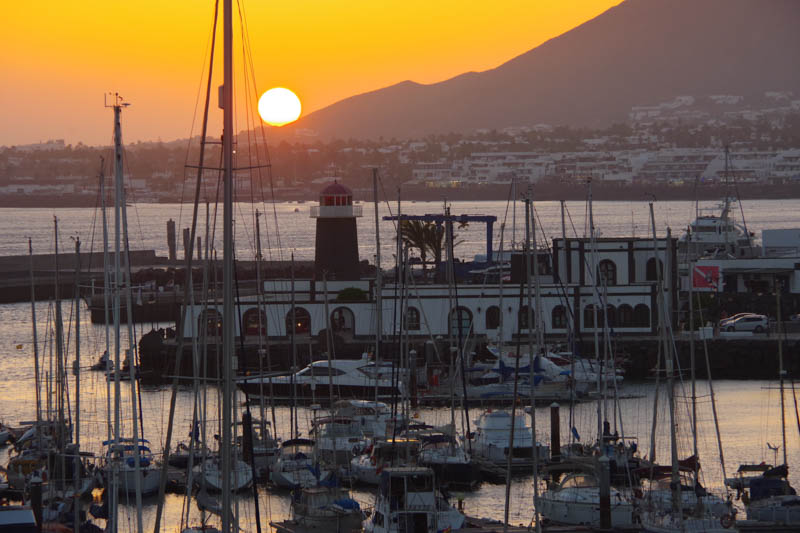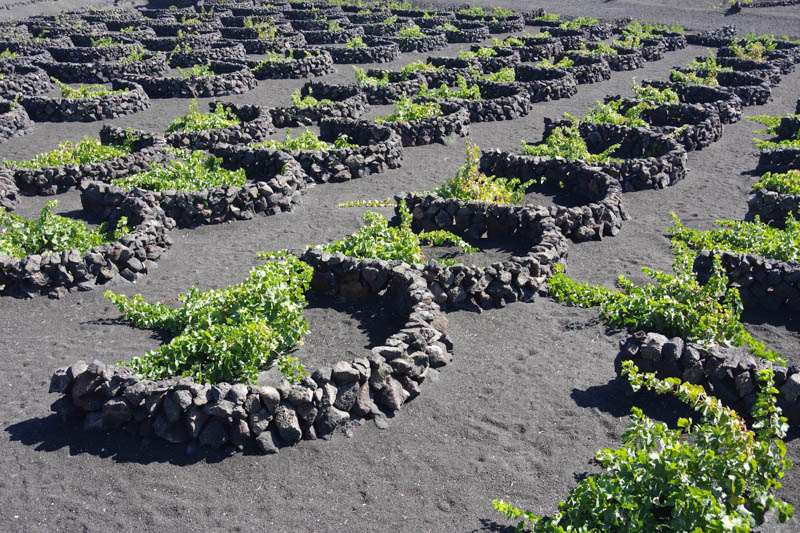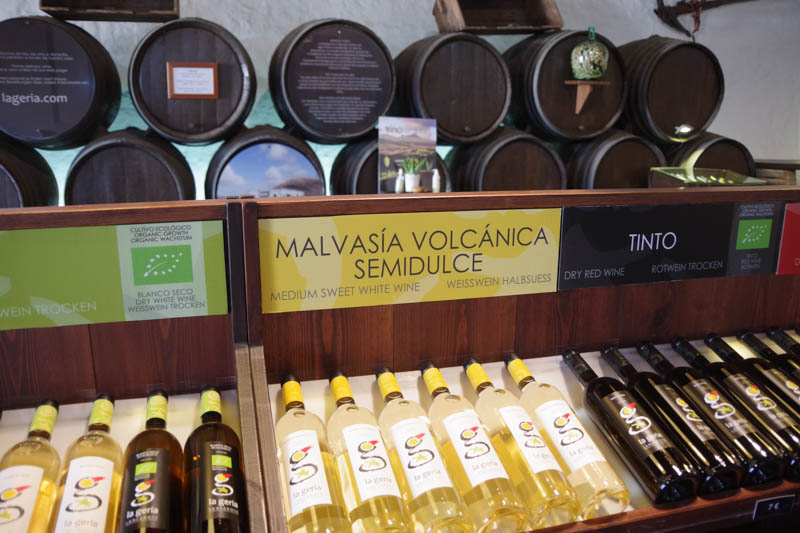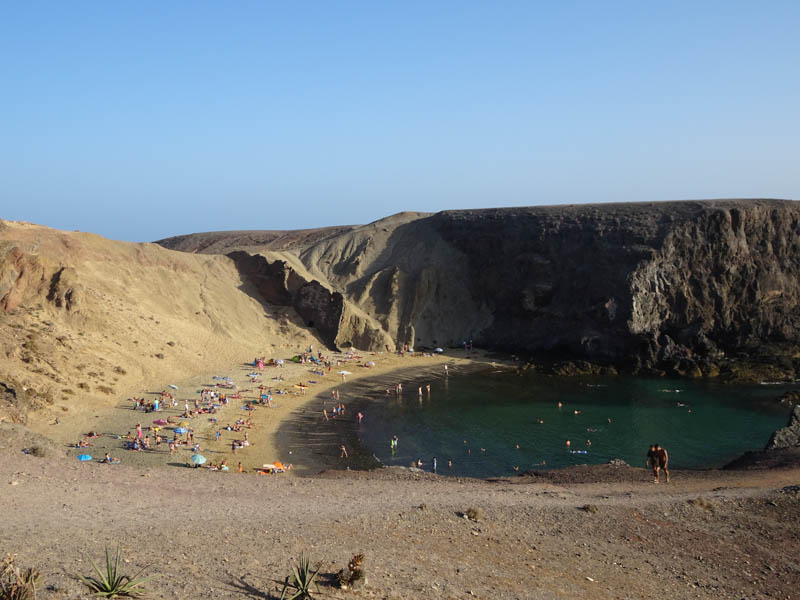
We have been in the Marina Rubicon for 8 days now and we are quite content here. We rented a car for three days and did a small tour in the southern half of the island, plus, of course, a trip to the supermarket in the main city of Arrecife.
The island is completely volcanic and quite barren. There were repeated volcanic eruptions from 1730 to 1736 that covered more than one-quarter of the island in lava. The lava flows are still quite obvious. There is very little vegetation, mostly black volcanic cinder, ash, and rock. Beautiful in its own way.

There is little rainfall and no natural vegetation to retain any rain that falls. So it is a bit of a surprise that wine production is the dominant agricultural pursuit and has been for a few hundred years. Here they grow the Malvasia grape in a unique way, and produce a wine that was praised by Shakespeare hundreds of years ago. Grapevines are placed in a hole scooped out of the volcanic ash. One vine per hole. The vines are covered with volcanic gravel (picón). The hole is surrounded by a semi-circle of volcanic rocks to keep it from drying out. At night, the picón absorbs the moist ocean air that blows off of the Atlantic, slowly releasing moisture and keeping the roots of plants cool. We can attest to the moisture in the air because every morning Sabbatical III is wet with dew.



M.

